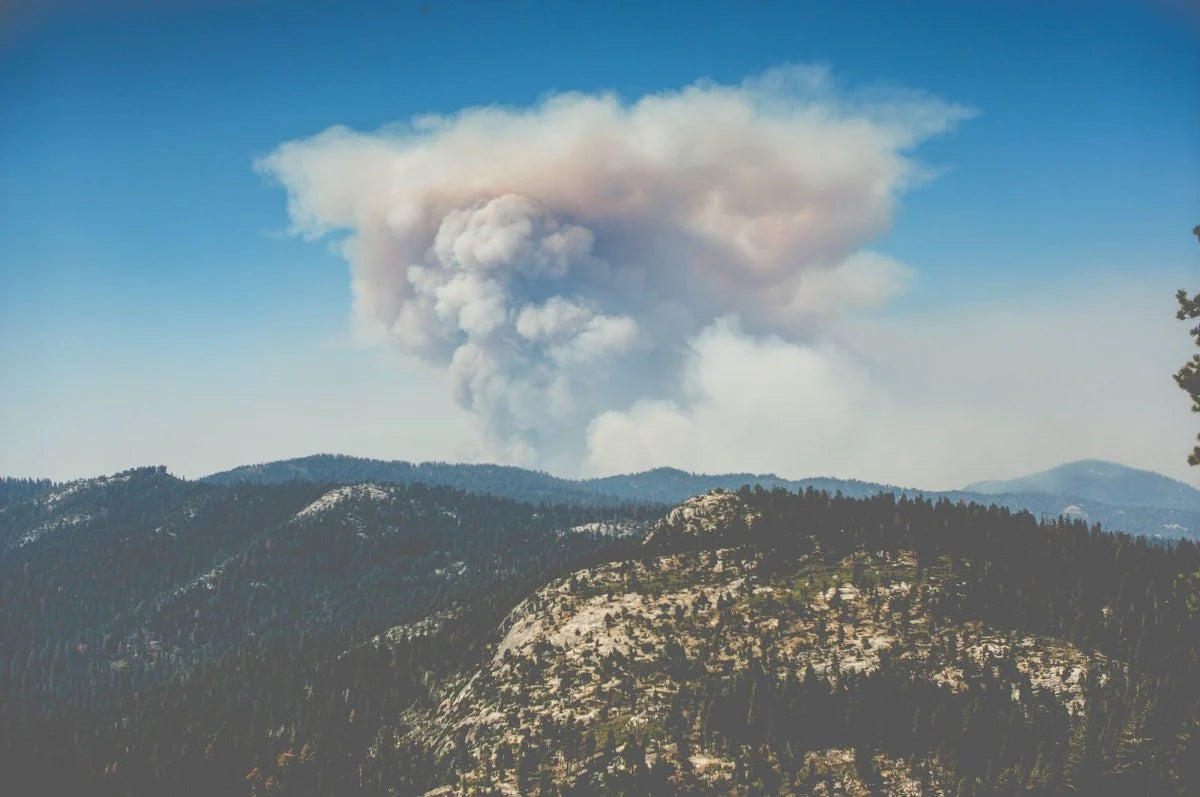With the arrival of winter, dry nose and sinus problems become more and more common. Interestingly, controlling and maintaining proper air humidity and sinus moisture isn’t a topic we hear about enough considering the significant health challenges that the dry air and consequently dry sinuses can cause. Our respiratory system needs moisture for optimal healthy function. In addition, the mucus that covers our upper respiratory passages function to trap germs, irritants, and viruses effectively decreasing the chance of catching a cold or sinus infection.
Here we outline some of the main reasons why we experience dry sinuses and offer simple tips for maintaining proper sinus health.

Causes of dry sinuses
Sinus dryness can be caused by several conditions or irritants like cold and dry air, seasonal and pet allergies, decongestant medications, and environmental irritants.
Cold & Dry Air
The most common cause of dry sinuses is dry and cold air. The regular use of heating systems inside homes during winter months is one of the main causes of dried sinuses. The mucus linings of our nostrils function as a protective mechanism to help moisturize and warm up the air we breathe, the cold and dry winter air whether indoors or outdoors often overwhelm this function causing a dry nose.
Seasonal & Pet Allergies
Seasonal and pet allergies are another key factor for dry sinuses. Whether you are dealing with seasonal or pet allergies, allergies irritate the sinuses often causing inflammation and dryness which then causes excessive and thick mucus production causing a host of other sinus troubles.
Decongestants & Antihistamines
Some over-the-counter and prescription medications can cause dry sinuses the most common of which are decongestants and antihistamines. These classes of drugs are designed to address excess mucus production caused by allergies or sinus infection but often they interfere with the natural production of healthy mucus causing the nostrils and sinuses to get to dry. If you are experiencing dry sinuses as a result of a medication, talk to your doctor about alternate options that do not dry the sinuses. An all-natural saline nasal spray could be a good and safe alternative to medications.
Environmental Irritants
Dry sinuses can also be caused by environmental irritants or toxins. Many cleaning products, paints, industrial chemicals, synthetic perfumes, cigarette smoke, wildfire smoke, and dust irritate and dry out sinuses. We encourage you to clear your home of harsh chemicals and opt-in for natural alternatives. If exposure is inevitable due to work-related duties, we highly recommend using proper industrial masks to protect your sinuses.

Treatments for dry sinuses
Maintaining proper sinus moisture is simple but important. From proper dehydration to over-the-counter interventions, taking a few small steps to keep your sinuses healthy can have a great positive impact on your overall health especially in cold and dry climates.
Stay Hydrated
Drinking enough water is probably the oldest and most consistent health advice we ever hear. With that said, we can never quite overstate the importance of proper internal hydration in maintaining our health and well-being. A hydrated body keeps our tissue healthy and moisturized and helps fight off irritants and pathogens more effectively.
Humidify The Air
Using a humidifier is a great way of maintaining moisture indoors. Our indoor cooling and heating systems often suck the moisture out causing unhealthy indoor conditions. Using a humidifier daily helps restore healthy levels of moisture and support the sinuses especially in dry and cold climates. The optimal air humidity for healthy sinuses is 30%-50%, you can use a hygrometer to measure.
Inhale Steam
Inhaling steam is another effective method for hydrating the sinuses. In the absence of a humidifier, taking a hot and steamy shower, using a hot pot of steaming water, or sitting in a wet sauna can help moisturize the sinuses temporarily.
Use A Saline Nasal Spray
Saline nasal sprays are one of the most effective and easy ways to keep the sinuses moist both indoors and on-the-go. Unlike medicated decongestants that actually tend to dry the sinuses, all-natural saline nasal sprays keep the sinuses moist and healthy even with daily use. Furthermore, they are the only solution that can be taken with you anywhere you go, this comes handy for outdoor activities like running, hiking, skiing, and snowboarding in dry/cold climates where the sinuses are especially vulnerable. When buying a nasal spray, pay close attention to the ingredients in the product as many contain medicated decongestants that often cause extra dryness in the sinuses and can be habit-forming.
Rinse The Sinuses
Another effective way of moisturizing sinuses is to use an iodide-free salt and sterilized water to rinse out the sinuses. This is often done with a device called a Neti Pot. The Neti Pot rinse helps flush out irritants, allergens, pathogens, and excess mucus while irrigating the nostrils and sinuses.
Conclusion
Although having a dry nose is mostly a harmless and temporary condition, if gone untreated it can cause a wide range of upper respiratory troubles including rhinitis, sinusitis, and nose bleeds not to mention the increased risk of illness from exposure to bacteria and viruses. We encourage you to take these simple steps to ensure balanced and healthy air humidity at home and on-the-go for optimal health and vitality especially during cold and dry months of the year.
If you follow our suggestions but are still experiencing dry nose or sinuses, consult your doctor immediately as you might be suffering from more serious medical conditions that cause chronic dry sinuses like Sjogren's syndrome or Atrophic rhinitis.



